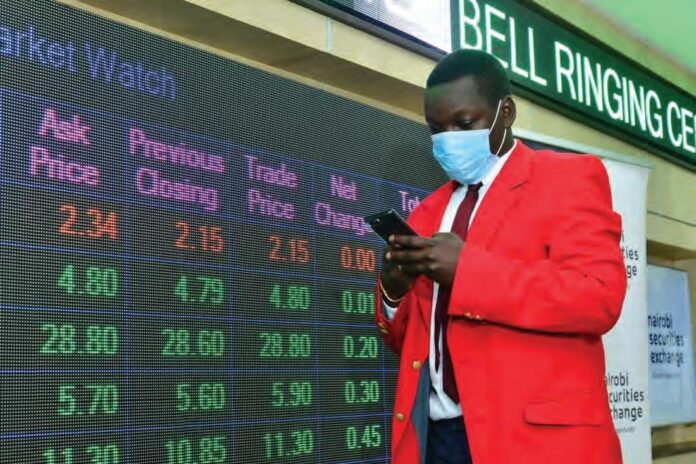A recent article by Afego et al. (2023) titled “How do markets react to political elections during periods of insecurity and governance crises? Evidence from an African emerging democracy” published in African Journal of Economic and Management Studies by Emerald Insight shows that the Nigerian stock market reacts to political elections during periods of insecurity and governance crises.
“
Differential market reactions, with strong positivity to opposition wins and weak positivity, at best, to incumbent re-elections.– Afego et al., 2023
This paper explores how the Nigerian stock market reacts to political elections during periods of insecurity and governance crises. The authors use an event study approach to measure the abnormal returns of the stock market around the 2015 and 2019 presidential elections, which were both deemed too close to call. In exploring the means of insecurity and governance, the authors highlight that the market reacted strongly positively to a change in presidency from an incumbent to an opposition party candidate in 2015, but weakly positively, at best, to the re-election of the incumbent candidate in 2019. With respect to the election, the market reaction reflects the changes in social mood and investor expectations caused by the perceived government’s inability to deal with the issues of insecurity and corruption. However, the authors point out that the market reaction varies across sectors, with banking stocks exhibiting greater sensitivity than oil and gas stocks, and the market reaction is robust to different methods of abnormal return calculation and consistent with behavioral theories of stock market fluctuations.
Methodology
The authors employed an event study approach to capture the market responses to the 2015 and 2019 presidential elections in Nigeria. The authors measure abnormal returns at the aggregate and sectoral levels over several time windows before and after the respective election results are announced. The study employed the mean-adjusted return model and the market model to calculate abnormal returns and cumulative abnormal returns, based on a 220-day estimation window prior to the event window. The authors explore a comparative market reaction to the election of an opposition candidate in 2015 and the re-election of the incumbent candidate in 2019, and examine how they differ across sectors, namely banking and oil and gas.
Findings of the Study
The authors found that the market reacts strongly positively to a change in presidency from an incumbent to an opposition party candidate in 2015, but weakly positively, at best, to the re-election of the incumbent candidate in 2019. The authors also found that banking stocks exhibit greater sensitivity to election events than oil and gas stocks, suggesting that different types of firms may be affected differently by the political environment and social mood. In addition, the study highlights the importance of understanding how market expectations and mood are influenced by perceived government incompetence in dealing with insecurity and corruption and how these factors affect voter support and stock market valuations.
Implications of the Study
- The authors show that the Nigerian stock market reacts differently to incumbent and opposition candidate electoral victories during periods of insecurity and governance crises, which may reflect the changes in investor and voter mood caused by these factors.
- The study suggests that the stock market is fairly efficient with respect to news of insecurity and governance challenges during elections, as it incorporates the perceived government inability to deal with these issues in stock prices.
- The authors highlight the need for market regulators to monitor events around national elections to mitigate unnecessary volatilities in the stock market and for electable public officials to be aware of the potential implications of perceived government incompetence for consumer and investor confidence and voter support.
- The study lends support to behavioral theories that argue that variations in the collective level of optimism or pessimism influence investor decisions and stock prices and corresponds with empirical findings from other fields that show that stock market returns are affected by shocks in public mood arising from various events.
- The study contributes to the literature on political events and stock markets in sub-Saharan Africa by providing empirical insights into how the markets can have a different perception towards incumbent and opposition candidate electoral victories during periods of insecurity and governance crises.
In conclusion, Afego et al.’s (2023) comprehensive analysis sheds light on the intricate relationship between Nigerian political elections, market dynamics, and the prevailing challenges of insecurity and governance crises. The study, employing a meticulous event study approach, reveals nuanced reactions within the stock market during critical electoral periods. The discernible disparity in market responses to incumbent and opposition victories, particularly notable in the varying sensitivities of banking and oil and gas sectors, underscores the importance of understanding investor sentiment and the impact of perceived government competence. This research not only contributes empirical insights to the sub-Saharan African literature on political events and stock markets but also advocates for increased vigilance by market regulators and heightened awareness among elected officials regarding the far-reaching implications of market volatility on consumer confidence, investor trust, and voter support. Ultimately, the study reinforces the interconnectedness of political, economic, and social factors in shaping market behaviors, offering valuable considerations for both academic discourse and practical policymaking.
















 The African Research (AR) Index is a comprehensive scholarly directory and database focused explicitly on journal publishers that publish and disseminate African research.
The African Research (AR) Index is a comprehensive scholarly directory and database focused explicitly on journal publishers that publish and disseminate African research.

